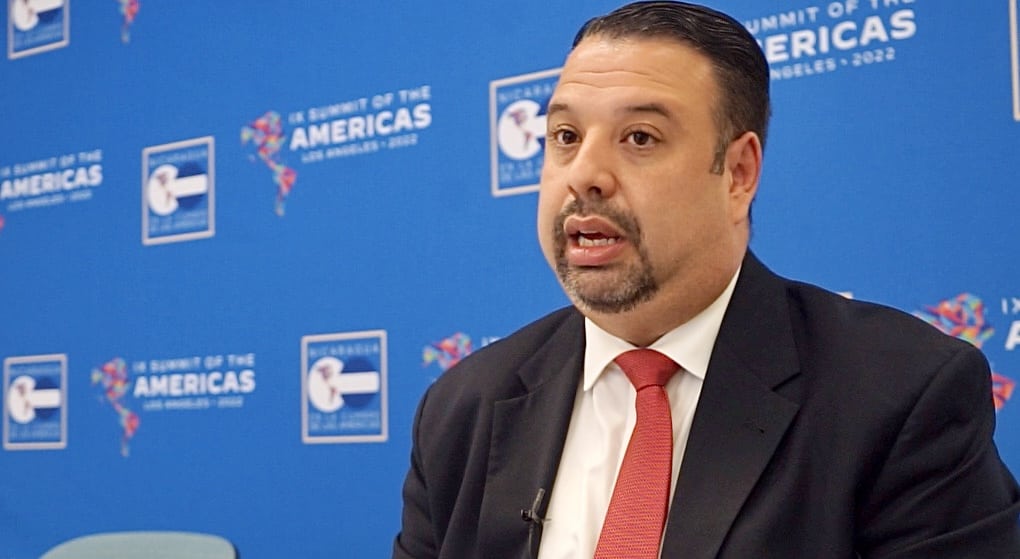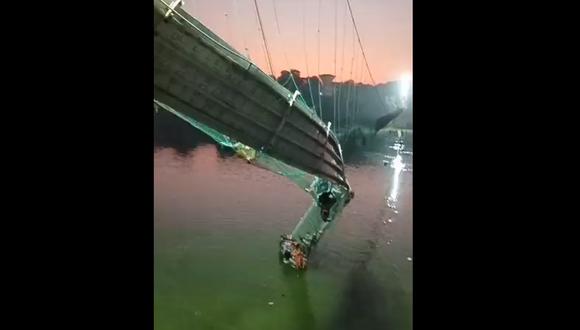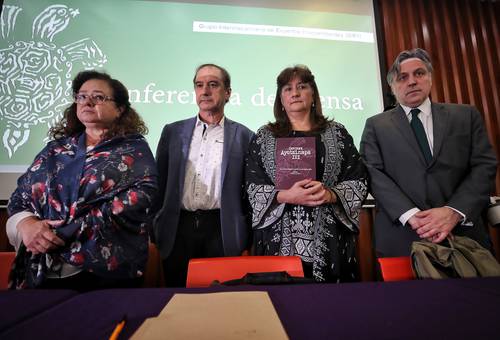The decision of the US president, Joe Biden, to expand the range of action of the presidential decree 13851about Nicaragua, is considered in Washington as “a strong message” to the regime of Daniel Ortega and Rosario Murillo.
“USA The U.S. will continue to support the Nicaraguan people and demand the immediate release of political prisoners,” says Wilson Center senior adviser and national security and foreign affairs expert, Eddy AcevedoAmerican analyst of Nicaraguan origin.
The amendment “allows other sectors of the economy to be sanctioned”, so now the Biden administration can “prohibit new US investments in certain sectors identified in Nicaragua and also prohibit the importation of certain products of Nicaraguan origin.”
“It is wanted punish Ortega, his colleagues, his relativesthose who are involved with the regime, those who are helping it raise funds and doing it this way does not affect the Nicaraguan people,” he emphasized during this interview he gave to the program This week which is broadcast this Sunday, October 30 on the CONFIDENCIAL YouTube channel.
What is attributed to this measure by the United States Government to amend a decree by President Donald Trump to now impose not only individual sanctions but also sectoral sanctions, aimed at representatives and specific sectors of the Nicaraguan economy?
This new policy of the (Joe) Biden administration sends a very strong message to (Daniel) Ortega, that the United States will continue to support the Nicaraguan people and demand that political prisoners be released immediately, it is a decision that has received a lot of support bipartisan in Washington. As we know, the regime benefits from millions of dollars from the sale of gold and this is a strategy that, not only Ortega but also (Nicolás) Maduro, have applied to try to raise funds to continue repressing the people. The most important thing about the sanctions against gold is the amendment, because it allows other sectors of the economy to be sanctioned, helps to prohibit new US investments in certain sectors in Nicaragua and prohibits the importation of certain products of Nicaraguan origin. That sends a very strong message to the Ortega regime and also to the private sector, because we know that some in the private sector have been laundering money for the Ortega family. We have the attention on Nicaragua and if the situation does not improve, soon there will be other policies and decisions that we can make.
How do you assess the impact that this measure has had in the first days, because the mining companies, which are mostly Canadian and British, say that they have no relations with the Ortega regime and that they are going to continue operating, although the share price on the stock market?
We are in the early days of this decision. Right now a process is going to begin where the US Government, specifically the Treasury Department, is going to have conversations with these companies to find out what the truth is and what those agreements are like that they have with the (Nicaraguan) Government. I think it is very difficult for these companies to be successful in Nicaragua without having some kind of relationship with the regime. The (US government) is going to give the companies a chance to leave Nicaragua if necessary, if they don’t they can be sanctioned as well.
What is the possibility that this type of policy will spread to other industries, because the United States is the main market, the main trading partner of Nicaragua?
We have already made some decisions. You will remember that a couple of months ago the Biden administration made the decision not to buy sugar from Nicaragua. Another idea, which I have exposed publicly, is to stop buying beef from Nicaragua, which is another sector controlled by the Ortega regime and is directly involved with the United States. So, this is a very strong message to the regime. Now we have to figure out how we are going to move forward and if the repression continues, if some in the private sector continue to help this regime that is brutal and criminal, there are going to be consequences.
This Thursday, for the first time, Daniel Ortega spoke of the massive exodus of Nicaraguans abroad, but he blamed the United States and the sanctions for this migration. How is this message read in the United States Congress and in the White House?
This is an excuse that many have said in this region. Ortega and Maduro continue with this excuse, but nobody really believes them anymore, there is no legitimacy about these excuses. We all know that the reason for the migration of Venezuelans, Nicaraguans, Cubans, is because the regimes are violating their human rights, they are taking away their freedoms. That is the real reason for the migration that we are seeing in the region.
But could this new policy that the Biden administration is promoting, of restricting Nicaraguan imports from some industries, also have an impact on employment in Nicaragua and on the lives of Nicaraguans?
The statements made by the Administration a couple of days ago was that when they make these decisions they are not affecting the lives of the people of Nicaragua. That is the number one priority in any decision that is made about Nicaragua. They want to sanction Ortega, his colleagues, his relatives, those who are involved with the regime, those who are helping him raise funds, and doing it this way does not affect the Nicaraguan people.
How do you evaluate the immigration policy of the United States at this time towards the Nicaraguans who are being massively detained at the border, who are surrendering? Is there an opening policy or is that going to change?
The policy is going to have to change. For a long time in the United States they thought that those who came to the border were Mexicans, later that changed and they were people from the Northern Triangle and the idea was to invest resources so that the people from Guatemala, El Salvador and Honduras would stay in their country. Now we see that immigrants from Venezuela, Cuba, Nicaragua and Haiti have increased, and the reasons why these people are coming are political reasons. So now we have to change how the United States sees the situation in Latin America. The Administration is very focused on what is happening in the Ukraine, China, Russia; but we want more attention to Latin America because we think we can help there.
But in what direction does this change point towards migrants from Nicaragua, Cuba and Venezuela? Could the United States offer a special or temporary care policy for these migrants, or are policies of rejection going to be reinstated?
I think it is too early to see exactly what the policy will be for the future. At the Summit of the Americas there was the famous declaration of Los Angeles in terms of immigrants and they are trying to find a way for the United States to work with the countries of the region on this issue. It is a bit early to see exactly what those (immigration) policies are going to be, but also, with the new elections in November, there will possibly be new faces in Congress and I am sure that many will want to find solutions to this issue.
















